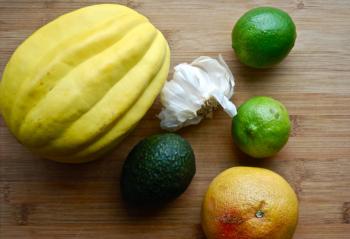Greetings! This blog is about food, politics and the politics of food. In recent years, after a slow recognition that most people in the developed world have very little control over their food, where it comes from, what is in it or how it is produced, there has been a movement toward taking control of what you eat -- buying your produce from a farmer's market, growing or cooking it yourself, avoiding ingredients with pesticides or hormones or scary multisyllabic chemical ingredients.
And that’s great. I'm all for it. But I've found that this new wave of foodies often gets broken into two camps. First, you have the avid home cooks and DIY-ers who like to cook with whole ingredients and post beautiful photos of their recipes that look like they belong in an issue of Kinfolk magazine. And then you have the political camp, writers who explore issues of food sovereignty and how inaccessible healthy food is in poorer neighbourhoods of North American cities and how the meat industry is really, really terrible. It seems that the avid food bloggers rarely think about the political implications of their eating or the privilege tied up in it. It may be all well and good to eat organic locally grown kale, but usually that costs $6 a bunch, and so is out of reach to a lot of people. But it also seems as though food politicos never sit down to enjoy a good meal. And hey, we all have to eat, and some of us really enjoy eating!
This blog will talk about both sides of the debate. It will discuss issues of food sovereignty, but then will tell you how to make that potato taste really awesome after you’ve fought the good fight to acquire it. Recognizing that food is the stuff of life, that it nourishes our bodies and connects us to others, this blog will talk about food and how delicious it is -- but not without considering the social, political, financial and environmental implications of that deliciousness.
Initially, this blog will feature content about the Okanagan Valley, both because I happen to live here at the moment and because it's an agricultural centre for the province, an area ripe with produce and hot button political issues. A long, narrow 10,000 km2 strip located in B.C.'s southern interior, the Okanagan boasts the highest concentration of vineyards in Canada and produces almost 40 per cent of the province’s fruit crop. It is also a naturally arid region with hot, dry summers, which means that increasing development and climate change threatens water security every year. Over 1200 migrant labourers enter the region every summer through the Seasonal Agricultural Workers Program, and area is also home to some innovative young farmers who are looking to change our relationship to food. There's a lot going on, and the region is a microcosm for food matters currently affecting our country (and world) as a whole.
Look out for posts that explore these issues, along with advice for how to apply newfound knowledge in your own kitchen.
Stay tuned!




Comments
Do
Don't